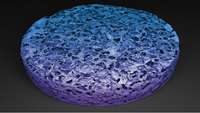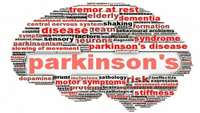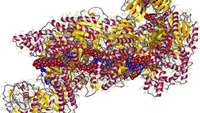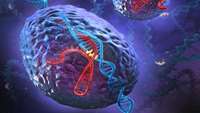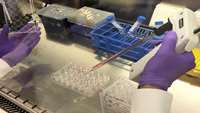CRISPR Gene Therapy via Skin Grafts Treats Obesity and Diabetes in Mice
Genetically engineered skin cells grafted onto mice can treat the animals’ diabetes and obesity, according to new research published August 2, 2017 in Cell Stem Cell.
Stem cells from umbilical cord blood may help treat eczema
A new study suggests that treatment with stem cells from umbilical cord blood might be an effective therapy for patients with moderate-to-severe eczema, or atopic dermatitis.
T cell traps; An approach to attract and capture elusive immune disease cells in vivo
T cells, a subtype of white blood cells, play key roles in cell-mediated immunity, be it to fight infections and cancer or, when corrupted, to react against the body’s own cells in more than 80 autoimmune diseases, including type I diabetes, multiple sclerosis, rheumatoid arthritis and others. However, isolating disease-related T cells from the body to better study or eliminate them poses a formidable challenge to researchers and clinicians.
Could CRISPR be used as a biological weapon?
The gene editing technique CRISPR has been in the limelight after scientists reported they had used it to safely remove disease in human embryos for the first time. This follows a "CRISPR craze" over the last couple of years, with the number of academic publications on the topic growing steadily.
Parkinsons: Stem cells restore nerve function in monkeys
Using stem cells, scientists have managed to restore nerve function in monkeys with Parkinsons disease. The findings may change therapeutic practices in humans.
Blunting CRISPRs scissors gives new insight into autoimmune disorders
Each one of our cells has the same 22,000 or so genes in its genome, but each uses different combinations of those same genes, turning them on and off as their role and situation demand. It is these patterns of expressed and repressed genes that determine what kind of cell—kidney, brain, skin, heart—each will become.
Mass General, CRISPR Therapeutics to Develop Cancer Therapies
CRISPR Therapeutics and Massachusetts General Hospital Cancer Center (MGHCC) announced today that they have signed a two-year research collaboration and license option agreement to develop novel T-cell therapies for cancer.
FDA approval brings first gene therapy to the United States
The U.S. Food and Drug Administration issued a historic action today making the first gene therapy available in the United States, ushering in a new approach to the treatment of cancer and other serious and life-threatening diseases.
MSU Researchers Find How Belly Fat Could Increase Cancer Risk
It’s been well established that obesity is a contributor to cancer risk, but how it actually causes cancer is still a question that hasn’t been fully explained.
Lab-made “mini organs” helping doctors treat cystic fibrosis
UTRECHT, Netherlands — Els van der Heijden, who has cystic fibrosis, was finding it ever harder to breathe as her lungs filled with thick, sticky mucus. Despite taking more than a dozen pills and inhalers a day, the 53-year-old had to stop working and scale back doing the thing she loved best, horseback riding.




